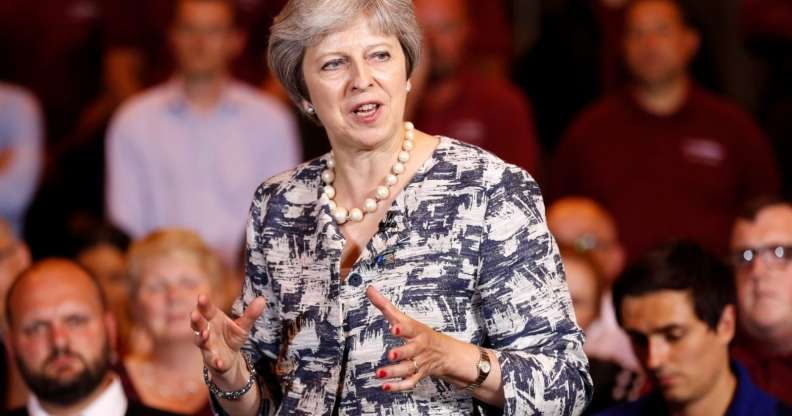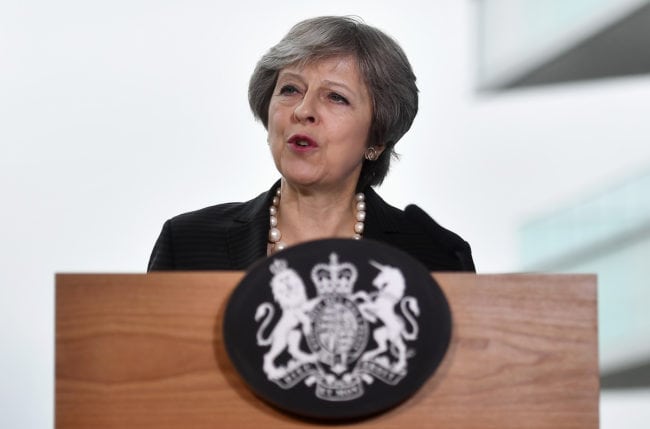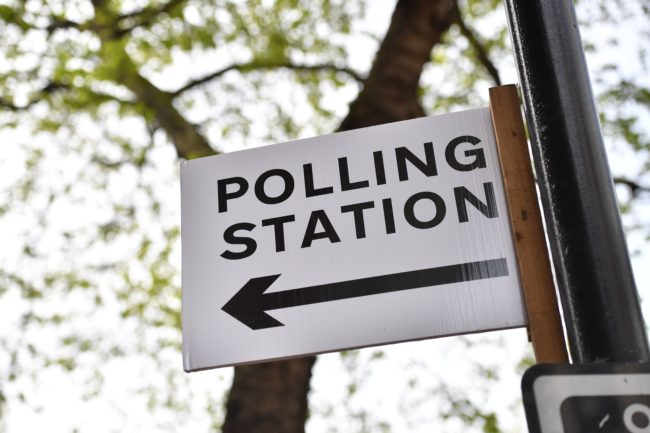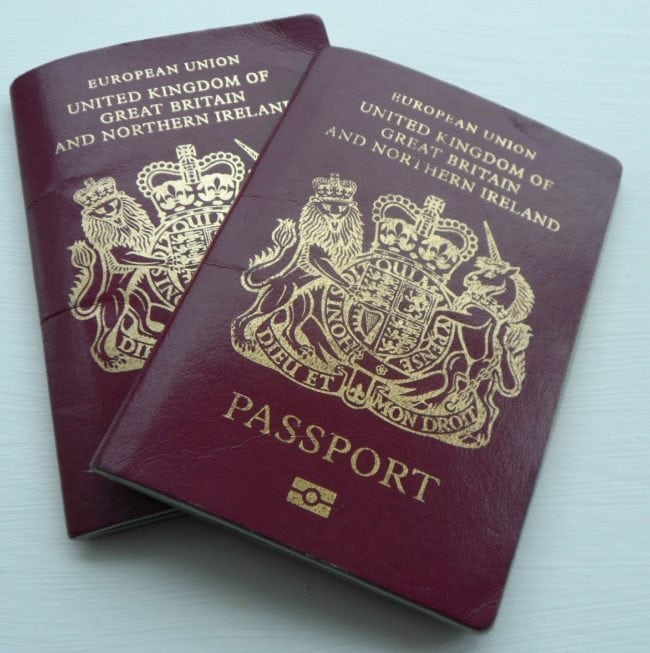Theresa May urged to scrap roll-out of Voter ID rules that ‘could disenfranchise trans people’

Britain’s Prime Minister Theresa May (RUSSELL CHEYNE/AFP/Getty)
Theresa May has been urged to abandon plans to roll out ‘Voter ID’ rules for UK elections, amid fears they could discriminate against trans and non-binary people.
The UK government recently piloted a ‘voter ID’ system in some areas during local elections, which require people to show a government-issued photo ID before they are permitted to can vote.
The plans had already been likened to US state-level ‘voter ID’ laws, which are routinely criticised for disenfranchisement of African-Americans, the poor, transgender people, and other minority groups unlikely to have up-to-date official IDs.

Britain’s Prime Minister Theresa May (CHARLES MCQUILLAN/AFP/Getty)
This week the Prime Minister was urged to “think again” and halt moves to impose mandatory voter ID for further elections, after a report on the trial from the UK’s election watchdog found that “there is not yet enough evidence to fully address concerns and answer questions about the impact of identification requirements on voters.”
The Electoral Commission report had warned: “Wider evidence suggests that further work is needed to make sure that an identification requirement doesn’t stop people who are eligible and
want to vote in future elections.”
The LGBT Foundation signed on to a joint letter by 22 organisations, campaigners and academics, calling for the government to drop the proposals in the wake of the report.
Emma Meehan, Assistant Director Insight and Public Affairs at LGBT Foundation, told PinkNews in a statement: “The Government should be doing everything in its power to open up the democratic process, especially to the most marginalised groups in society.
“We have some concerns that the Government’s plans to conduct further Voter ID trials could disenfranchise some LGBT communities.
“Trans and non-binary people may be disadvantaged by any requirement for voters to show photo ID, as the photo on their ID may not reflect their gender expression or identity, leading to possible challenges from polling station staff. A proportion of the 7.5% of people in the UK without photo ID are LGBT- particularly those who are homeless, or on a low income.
“The unintended consequences of these trials could be LGBT voters being turned away from polling stations.
“At a time when LGBT communities in the UK still face significant inequalities, we urge the Government to take steps to ensure that the voices of LGBT people are heard in our democracy.”

(BEN STANSALL/AFP/Getty)
The letter was spearheaded by the Electoral Reform Society.
It says: “As it stands, this policy has the potential to create a significant barrier to democratic engagement for the communities we represent.
“It remains the case that Voter ID would tackle only a small category of voter fraud, namely personation, of which there is little evidence of a widespread problem. Yet it has the potential to disenfranchise a significant number of legitimate voters.
“350 people were turned away from voting for not having the correct ID in the five pilots areas in May, and did not return. When compared to the 28 allegations of in-person fraud made in total in 2017 – out of nearly 45 million votes – it is clear this scheme is anything but a proportionate response.
“Further trials are a distraction from the many more pressing challenges our democracy faces. There are other measures which the government could be pursuing, which would do more to help meet the Cabinet Office’s plan to improve democratic engagement.
“We urge the government to think again about imposing this risky policy of voter ID.”

UK passports (Karen Bryan/Flickr)
Jess Garland, Director of Policy and Research, Electoral Reform Society, said: “There is now a huge groundswell across civil society urging the government to change course on this damaging policy. These are organisations working with some of the most disadvantaged communities in the UK – all calling for ministers to think again.
“The trials held in May were deeply flawed, and this has now been recognised by the Electoral Commission in its report.
“The five areas totally failed to reflect the diversity in British society – and have failed to allay fears that marginalised groups could be disproportionately affected.
“In light of the Electoral Commission’s report we remain deeply concerned about Voter ID and the potential damage to democratic participation and political equality in this country. We urge the government to think again.
“There has still not been a sufficient explanation from the Constitution Minister about why Voter ID in this form is being prioritised.
“We are told it is to tackle fraud – but Electoral Commission figures show that there were just 28 allegations of in-person fraud made in total in 2017, out of 45 million votes cast. In contrast, 350 people could not vote in the pilots as a result of the ID requirements. This policy remains a sledgehammer to crack a nut.
“Voters are far more concerned about the accuracy of the electoral register, biased media coverage and the influence of big political donors – voter ID is simply not a priority for Britain.
“It is not too late for the government to redirect its resources and seek to address the many serious democratic concerns.”
Dr Omar Khan, Director, Runnymede Trust, said: “We know from the Windrush scandal that it can be difficult for minority groups to provide documents proving their identity, through no fault of their own.
“We also know from examples around the world that they are more likely to be disenfranchised when voter identification requirements become stricter. It is shocking, therefore, that none of the pilots took place in more diverse areas.
“Runnymede calls on further pilots to determine whether voter identification changes will increase already existing racial inequalities in voting rights, and to learn how Britain can better tackle the voter registration gap which currently exists.”

